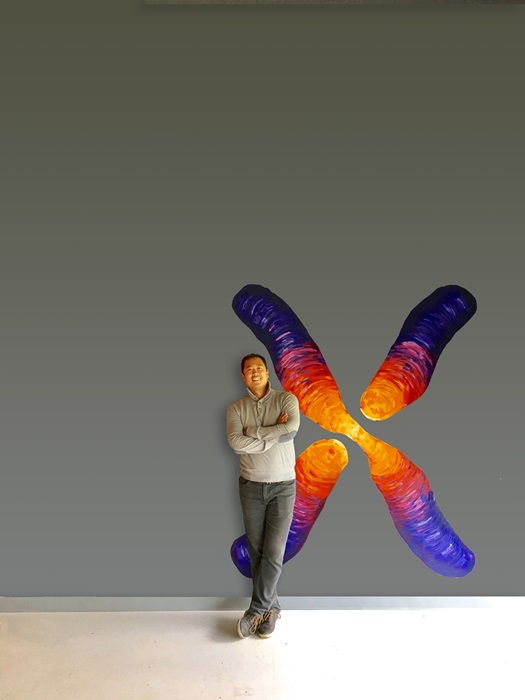StemoniX develops and manufactures living human microOrgans using advanced human stem-cell technology, micro-engineering techniques, and high-volume bio-manufacturing processes to help our pharmaceutical customers overcome traditional drug discovery hurdles.
By combining these microOrgans with innovative analytics to identify new medicines, we can significantly shorten the time to finding new and potentially better therapies.

Human cardiomyocytes cultured on an engineered microHeart culture plate. (Insert: Digital rendering of microHeart cardiomyocytes highlighting the aligned fibers)
The end result is creating medicines that are safe, effective, and more quickly available to patients.Developing new drugs is incredibly inefficient. For each drug approved by the FDA, a dozen fail in the clinic, and thousands are discarded during the course of discovery and development.
Just a Quick Note:
InnovationsOfTheWorld.com has partnered with Trade License Zone (TLZ) to support global innovators looking to expand internationally. Take advantage of the UAE’s Free Zones—enjoy streamlined setup, low corporate taxes, and a strategic gateway to the Middle East and beyond.
Get Your UAE Free Zone License Fast & Easy!This process can take a decade and cost over a billion dollars for a single approved drug.
A significant driver of these inefficiencies is that the simple cellular and animal models used in the early phases of drug discovery and preclinical development, before drugs are tested in human clinical trials, do not accurately represent human biology.
Furthermore, approved drugs may not be as effective as demonstrated in clinical trials and may cause serious adverse events, both of which can result in unnecessary suffering, death, emotional toll, and financial and resource losses for both patients and developers.
StemoniX developed its innovative human microOrgan® platform to overcome these hurdles.
Our microOrgans more accurately represent human biology by using human stem cells, derived from skin or blood, and micro-engineering techniques to generate multicellular 2D and 3D tissue structures (microOrgans) that mimic the biology of the target tissue.

We supply these microOrgans to pharmaceutical customers around the world in ready-to-use high-throughput labware formats to enable simultaneous testing of thousands of drugs using standard laboratory equipment.
Our first two microOrgan products, microBrain® and microHeart®, were among the world’s first ready-to-use cell-based products containing living, functional human cardiac and neural tissues, respectively.
To do this, we developed industrial-scale bio-manufacturing capabilities that are guided by a rigorous quality system, yielding consistent products that deliver reproducible results for our customers.
We also partner with pharmaceutical companies and research organizations, large and small, to develop disease models based on our microOrgan technology and test their compounds and drug libraries.
We then use innovative analyses and apply machine learning techniques to make informed decisions on the generated data.
Multicellular microBrain 3D spheroid showing neurons (green) and astrocytes (red).
Our products and services enable our customers and partners to truly study “human disease-in-a-dish,’ such as epilepsy, neurodegeneration, and drug-induced toxicities to the heart and brain, identify novel disease targets, and implement high-quality human biology to discover effective and safe compounds with greater confidence for further development.
The StemoniX mission stems from our CEO and co-founder’s battle with cancer. Ping Yeh was diagnosed with Hodgkin’s Lymphoma, and it was unknown whether he would be cured or even survive the multiple rounds of chemotherapy.
“I experienced the anxiety of not knowing if the chemo would heal me, damage my heart, or kill me. Our goal at StemoniX is to ensure patients don’t experience the anxiety I suffered by helping the pharmaceutical industry to develop drugs that are safe, effective, and able to cure diseases the first time,” says Yeh.

Ping Yeh, CEO and Co-founder of StemoniX
Eye to the future
StemoniX currently provides products and services for diseases of the heart and brain. We are applying our microBrain platform to tackle the most difficult neurological diseases, such as Alzheimer’s, Parkinson’s, epilepsy, pain and addiction, as well as rare neurodevelopmental diseases such as Rett Syndrome.
We are working with our pharmaceutical partners to implement the microBrain and microHeart platforms for toxicity and safety evaluations earlier in drug development, which will not only more accurately identify potential drug toxicities before human clinical testing but also reduce the use of animal testing in preclinical research.
We are also continuing to develop innovative analytics techniques to process, analyze, and learn from the large amounts of data generated from our microOrgan products.
Finally, we are expanding the microOrgan platform into other organ systems to study metabolic diseases, as well as diseases that affect multiple organs.
Our team will continue to grow and apply innovative technologies to developing new medicines. It is a continuing and rewarding journey as we contribute to improving patient lives.













